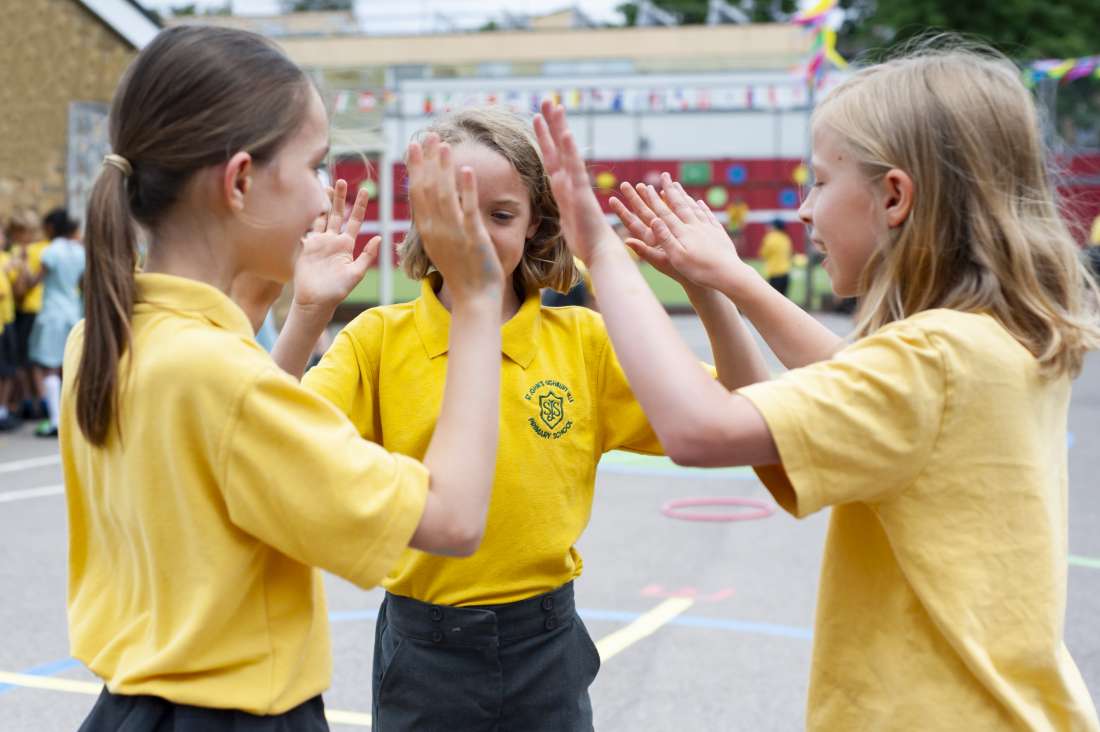PSHE

PSHE
PSHE
At St John’s Highbury Vale, PSHE seeks to develop the knowledge, skills and attributes children need to manage many of the opportunities, challenges and responsibilities they will face as they grow.
Our aim at STJHV for children;
- To build children’s self-esteem, resilience and empathy; to provide them with the knowledge and skills to develop healthy lifestyles.
- The ability to build, maintain and celebrate multi relationships that are diverse, non-discriminatory, strong, positive, meaningful and respectful.
- Understand and provide children with skills to care for their physical and mental health and well-being.
- To encourage and develop children’s spiritual and moral development so they can make the right informed decisions to play an active and meaningful role in society.
To support us in this, we use the resource Jigsaw – A mindfulness approach to PSHE. We give the children opportunities to learn in a number of engaging ways, including drama, role play, through interactive games and the use of media. Children have the opportunity to work independently and in groups. At the beginning of all sessions, the rules and expectations are set out to make the environment a safe one for children to ask questions, and explore subjects in more depth where they need to.
We feel that through the use of Jigsaw and the diversity it teaches, our children come away from PSHE sessions with an understanding of themselves, what they need to be healthy in both body and mind, how to have healthy relationships and make informed decisions for themselves. They also have a very strong understanding of difference and equality. As a diverse school this is especially important to us. We feel through our PSHE lessons children at St john’s are well informed about differences such a faith, race, disability and gender, all with a view to working and living harmoniously together.
RSE
The RSE curriculum is the teaching of compulsory Relationships Education, Relationships and Sex Education (RSE).
At St John’s Highbury Vale, RSE seeks to help children to learn about how their bodies develop and to learn about relationships in an age appropriate way.
Our aim at STJHV for children;
- Making and maintaining healthy, respectful and caring relationships, (family, friendships, romantic/intimate relationships)
- Making and maintaining healthy, respectful and caring relationships, (family, friendships, romantic/intimate relationships)
- What makes a friendship or relationship unhealthy, managing friendship problems
- Bullying and how to prevent it
- Being safe from abuse
- Being safe online
- Puberty-physical, social and emotional changes
- Reproduction and how a baby is made
Many children prefer their first conversation about RSE to be with their parents and carers. National surveys have shown that children want to talk to their parents about relationships, growing up and sex. Children are curious and want to learn about how their bodies work and develop and to learn about relationships. Primary schools will teach about relationships and sex education but it’s also important for parents and carers to talk to their children about these subjects and be able to reflect on their values.
From September 2020 all primary schools will be required to teach Relationships Education. Sex Education is not being made compulsory, but the Government recommend that all primary schools teach sex education, although parents can choose to withdraw their child from sex education. You know your child best and at what age it is best to talk to them about these subjects.

